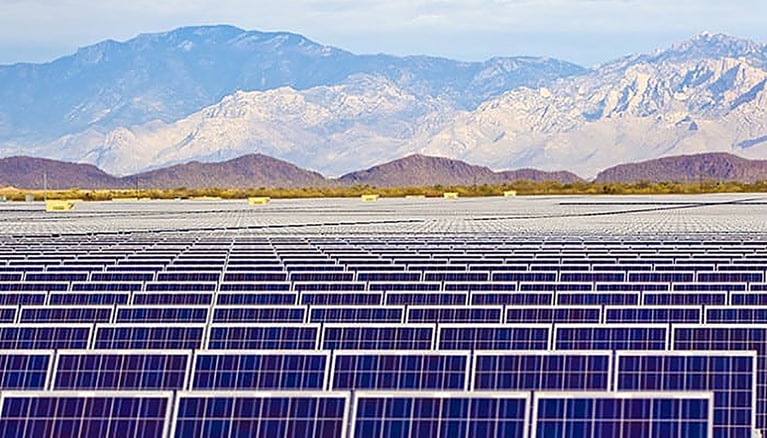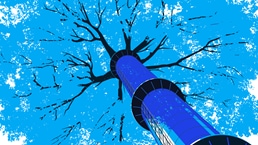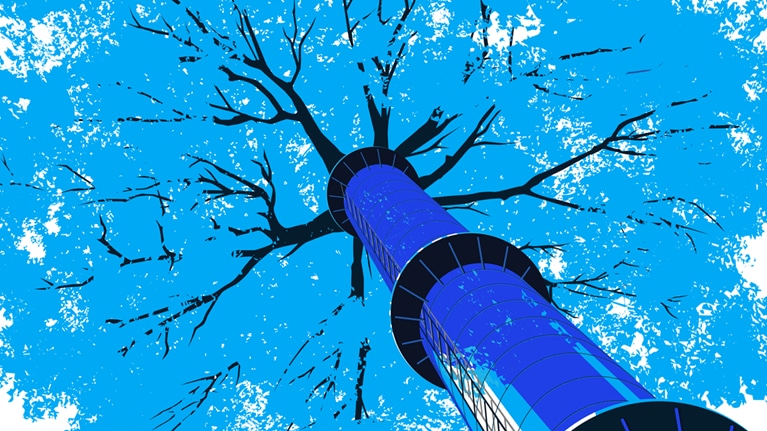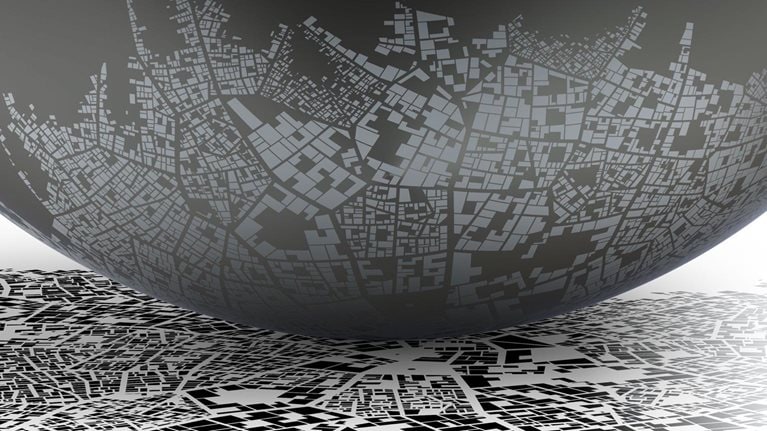“If the wind blows,” goes the well-known Arabic proverb, “ride it.” The idea is to capture opportunities whenever they arise, from whatever direction—and to allow their flows to propel you onward, even if the ultimate destination is uncertain or the route shifts along the way. Catch the wind, and off you go.
Or so it may appear. In fact, in today’s increasingly complex, immediate, and diverse global economy, this maxim can be confounding. How early can you detect when the winds begin to kick up, and in which direction do you look to catch them? How far are you willing to go once your journey begins? And, perhaps most difficult of all, how do you build an organization that weaves intelligent risk taking into its character, awareness into its makeup, and a long-term compass into its sense of direction? The reality is that catching the winds is more about steering with purpose than it is about riding by chance. Opportunities are generally not arrived at by accident.
Abdul Latif Jameel (ALJ)—named for its founder—offers a useful example. The company, which has its origins in Saudi Arabia, has been steering the winds of opportunity for more than 75 years, since its beginnings as a humble gas station. While ALJ’s past year may appear to be an annus mirabilis, the results have been years in the making. Both Ford and Amazon announced in 2019 that they were investing hundreds of millions of dollars in the ALJ-backed electric-vehicle manufacturer Rivian, with Amazon planning an initial purchase of 100,000 of its vehicles; ALJ was Rivian’s first major investor, eight years ago. In October 2019, two cofounders of the Abdul Latif Jameel Poverty Action Lab (J-PAL) at the Massachusetts Institute of Technology (MIT), a research center supported by the Jameel family philanthropy, Community Jameel, were awarded the 2019 Nobel Prize in Economics.
And that’s just part of the picture. ALJ is active in 30 countries and across a range of sectors, many of them with a long-term perspective, including energy (the solar-energy company Fotowatio Renewable Ventures [FRV], perhaps most prominently), transportation (in addition to Rivian and its Toyota distributorships, Motory.com is a large and growing online automobile-selling platform in Saudi Arabia), real estate, consumer products, and financial services.
Also flourishing: Community Jameel, the global philanthropy, a manifestation of the Jameel family’s explicit sense of purpose. Brothers Fady and Hassan Jameel are the third generation of Jameel family leadership and currently serve as ALJ’s deputy presidents and vice chairmen. They recently sat down with McKinsey’s Ahmed Youssef and David Schwartz in McKinsey’s London office to discuss ALJ’s operations and philosophy and the impact they hope to have on the world.
The Quarterly: I’m sure a lot of readers have read about Amazon’s venture with Rivian. If they’re active in sustainability, they’d know FRV. And they’ve likely heard that two prominent academics, Esther Duflo and Abhijit Banerjee, with whom you partner, have just won the Nobel Prize in Economics. Yet ALJ has chosen to remain under the radar. Could you share your company’s story?
Hassan Jameel: My grandfather started the business with a single gas station in Jeddah in 1945. In the mid-1950s, he contacted Toyota Motor Corporation and started importing Toyota vehicles into Saudi Arabia. My father and uncles then became involved in the business, and as ALJ grew in Saudi Arabia, the relationship with Toyota grew. We started finding other distribution and retail opportunities across the Middle East and North Africa. We became one of the biggest independent Toyota distributors; even today, we partner with Toyota in North Africa, Turkey, China, and Japan. At our peak, we’ve sold nearly a half-million new vehicles a year, globally. As a matter of fact, we also have a Lexus dealership in Japan, and that was by invitation from Toyota. We are the only non-Japanese Lexus or Toyota dealer in Japan, which we consider a tremendous honor.
Fady Jameel: My uncle went to Japan in the late ’60s to take part in a Toyota training program, and my father went to university there. For people from Saudi Arabia at that time, that was unprecedented. My brother and I have also spent a lot of time in Japan. I think that Toyota valued our willingness to try different management and training systems; they took a conscious decision to take us under their wing.
We wanted to be part of the disruption in mobility—we looked for ways to be disruptors rather than to be disrupted.
Hassan Jameel: As Fady said, we spent a lot of time with Toyota—learning the Toyota way and absorbing the culture. Today, brick and mortar is not necessarily seen as positive, but we are in brick-and-mortar businesses. We’re in distribution, logistics, real estate, services, and heavy operations. We’re following the Toyota way, using approaches of kaizen [continuous improvement] and genchi genbutsu—which means go out to the field and experience it yourself. If you see something in a report, you have to get up and actually go see it. If there’s a problem with a tire, bend down and touch it with your own hands. You’re supposed to get your hands dirty. You cannot manage or take decisions from an office. This fits with our approach at ALJ, because at the end of the day, we view our work as operations.
The Quarterly: How do you decide where to seek opportunities, in terms of sector and geography?
Hassan Jameel: The opportunities are vast anywhere you go. We made a conscious decision about eight years ago to look at auto manufacturing. We were the first major investors in the electric-vehicle manufacturer Rivian back in 2012, which is based near Detroit. With our background in automobiles, we wanted to get into the electric-vehicle space. We also wanted to develop in the United States, which is a very large automotive, SUV, and pickup market. Even more, we wanted to be part of the disruption in mobility—we looked for ways to be disruptors rather than to be disrupted. There’s so much noise now in mobility: the sharing and the hailing, the insurtech, the fintech. Companies like ours are wondering what the future holds. Investing with a clean slate in a company like Rivian gives us a read on the latest and greatest in that sector.
Fady Jameel: We also made the conscious decision a few years ago to go into renewable energy. It had been on our minds for some time, so we decided to acquire a Madrid-based company called FRV, with a target pipeline of 7.5 GW by 2024 to address the global market. Energy is a sector that we feel very strongly about. We like that it’s a long-term play. It’s not something you come in and out of. It gives you a very large geographic reach, whether in Latin America or Australia; it’s a good platform to work from and the industry is growing quickly. Nobody quite knows where it’s going to go, but that’s interesting for us.

In 2016, we established a desalination and water-treatment company, Almar Water Solutions [AWS], in Madrid. AWS now has offices in the Middle East, Africa, and South America. We are also looking at industrial water for mining or other uses, in Chile and elsewhere in Latin America. That’s a business that is even longer term; it takes four to five years to establish one plant. These sectors are important for us in terms of future business—not only geographic diversification, but also impact. There’s a great need for energy and for clean water, whether from a personal or an industrial point of view. We used to say that climate change would be a problem in 20 years, or in 50 years—but it’s a problem now, and I’m glad we’re in industries that are supporting sustainability.
The Quarterly: These are also big, capital-intensive businesses in areas that are uncertain. How do you decide when to enter a new industry, and when it’s too risky?
Hassan Jameel: I like to think of us as a 75-year-old “start-up.” Our chairman, our father, has always been very entrepreneurial, and he has given us, as the next generation, chances to make mistakes. And we have made mistakes. It’s essential for leadership to take chances.
Fady Jameel: You can’t just jump into any market that’s buzzy; you have to imagine it in 20 years and try to measure the risk associated with that opportunity. The risk is too high in industries we have no knowledge or experience of. Automotive is a business we know very well. Energy was a business we slowly got involved in. Generally, we like to get involved in related businesses that we can understand.
Hassan Jameel: Of course, when we invested in Rivian, we didn’t give them a blank check and say, “Here you go. Go build a car company and buy a factory.” It was done in tranches and in stages with the management over several years, until we gained each other’s trust. We don’t take these risks where we say, “Let’s just do it.” It’s still very calculated, almost methodical.
With a lot of family businesses, the culture is: ‘This is what we’re doing; this is what you have to do; and this is what we’re going to support.’ But in our case, as long as you’re doing something good and you’re passionate about it—then you do it.
Fady Jameel: FRV was similar. We didn’t fully understand the business at first; we weren’t accustomed to it. But once we were comfortable, we decided to take the next steps, and then we expanded to a much larger scale.
The Quarterly: It sounds like a key element of your approach is not to “just invest” but to partner. What characteristics do you look for in a partner?
Hassan Jameel: With Rivian—yes, we were investors, but we were working together as partners. I was out in Detroit every other month working closely with R. J. Scaringe [founder and CEO of Rivian]. We don’t have many partners, but for the ones we have, the relationship is very close. I can’t think of a time in my life when we acquired a business for the purpose of flipping it. We can make decisions that others can’t because we look at the long term. We would not have been successful with FRV or Rivian if we had been thinking, “OK, let’s do it for two years and then pull out.”
We kept Rivian in stealth for a good eight years because we wanted to make sure we didn’t flex our muscles until we had muscles to flex. And we were very fortunate to have partners like Amazon, Ford, and Cox Automotive come in. All of our partners are very strategic. Nobody’s looking for a quick buck.
The Quarterly: That focus on the long term also seems to apply to your family’s approach to philanthropy and your work with Community Jameel.
Hassan Jameel: My grandfather was a very generous man. He wasn’t educated in the conventional sense—business was his education—but he recognized the value of giving back. He would support communities around his town, regardless of what the issues were. He would just get involved. So the philanthropic concept of giving back to community has been around for 75 years. As my father became part of the business, they institutionalized that generosity and the philanthropic concept that has manifested into Community Jameel—our philanthropic organization, where its teams are held to KPIs, measurements, and metrics.

Five ways that ESG creates value
Fady Jameel: My father has always been willing to allow us, as his children and his vice chairmen, to get involved and support whatever we feel passionate about. He never pushed anybody in a direction, but he left the door open for us. With a lot of family businesses, the culture is: “This is what we’re doing; this is what you have to do; and this is what we’re going to support.” But in our case, as long as you’re doing something good and you’re passionate about it—then you do it. That’s the philosophy. Our philanthropic efforts and giving back to the community are pillars of the company.
The Quarterly: And the breadth of “community” is pretty expansive—such as your relationship with MIT, for example.
Hassan Jameel: My father, Mohammed Abdul Latif Jameel, is a graduate of MIT. My brother and I aren’t as smart as him, so we didn’t go there. [Laughs.] MIT is a wonderful institution. We have many collaborations with the university including various labs which we have endowed. These J-Labs bring together some of the best researchers in the world to look at critical issues—from elevating poverty to addressing the major fresh-water crisis. All focus on the same aspiration to build a better future for all.
Fady Jameel: In 2005, we endowed an MIT lab called J-PAL, the Abdul Latif Jameel Poverty Action Lab. Its cofounders, Abhijit Banerjee and Esther Duflo, have just won a Nobel Memorial Prize in Economics for their work at J-PAL, and we are incredibly proud to be a part of their story. Esther is the youngest person and second woman to win this prize.
The work J-PAL does is incredibly powerful. For instance, Africa is important to us, and we want to address malaria. More than 90 percent of global malaria deaths are in sub-Saharan Africa and there is still a lot of debate around the right way to address this challenge. So J-PAL sets up a team there to conduct randomized evaluations to scientifically determine the most effective way of solving the problem. They’ll say, for example, method A is 50 percent effective. Method B is 80 percent effective. Method C is 10 percent effective. Governments and foundations like the Nike Foundation and the Bill & Melinda Gates Foundation will say, “We want to solve this problem.” J-PAL will tell them, “Well, the best way to solve it—the best return on your buck—is using method B.”
To date, J-PAL has worked in 80 different countries, and I believe its work has positively affected more than 400 million people.1 For example, with malaria, their work has helped shift the approach toward providing life-saving products for free because they demonstrated scientifically the economic, as well as the social, value of that approach.
The Quarterly: All of which raises the intersection of purpose and the bottom line—a topic that’s on the minds of executives around the world these days. How do you view business purpose?
ALJ is a global company but our roots are deeply Saudi, and this informs everything from our history to the decisions we make today and to our ambitions for the future.
Hassan Jameel: The bottom line, alone, is not a purpose for a company anymore. An organization needs to have purpose, and we as owners and managers of the organization need to feel that. But, more importantly, your employees need to know and feel that the company has purpose, that it’s not just about making money and reaping profits. You need to have a real meaning behind why you’re going to work every day.
Profit is one indication of how well you are doing, but addressing other issues within your sector is very, very important. Our family’s art efforts and our philanthropic efforts are just as important as our bottom line. Yes, I know a lot of people will say that. We truly believe it. It’s really close to our hearts. Through Community Jameel, we also have a nonprofit subunit called Bab Rizq Jameel [BRJ], or “Beautiful Gateway to Prosperity.” BRJ has helped create 900,000 jobs in the Middle East and North Africa since its establishment, and its main focus is job creation, whether through microfinance or training for both men and women. I’ve met some Saudi businessmen and -women who have started with a very small loan from us and have established different sizes of businesses. Seeing the value that they’ve created is fuel for us to keep going.
The Quarterly: And I imagine seeing this unfold in Saudi Arabia is all the more inspiring. How do you think being from Saudi Arabia has influenced ALJ as a company?
Hassan Jameel: Absolutely, ALJ is a global company but our roots are deeply Saudi, and this informs everything from our history to the decisions we make today and to our ambitions for the future. For eight decades, Saudi has been the center of our operations, our largest market, and our launchpad to the world. And we are committed to being a positive part of Saudi Arabia’s story.
Fady Jameel: Saudi Arabia is a thriving, young, and ambitious nation built from a land of harsh, dry desert, and I think this means that tenacity and innovation is a core part of the DNA of Saudi people and businesses. Saudi is also a melting pot. You find talent with the locals, as well as from people from all over. It’s a great place to launch from. When we opened in other markets, we were able to use a pool of resources that wouldn’t normally be available.
The Quarterly: It’s interesting that you speak of “resources.” Because the perception—or perhaps it’s a misperception—from many in the West is that the flow of trade is one of natural resources, petroleum in particular, from the Middle East outward.
Hassan Jameel: Our most important resources are people and ideas. Since the ’60s, our company has been focusing on training and development. In the ’80s, we built significant training facilities in Saudi Arabia, with a focus on sales and after-sales activities. It’s still up and running, and it’s a very important part of our business. We also have programs where we send young Saudis and non-Saudis to Japan. Fady trained in Australia, and I trained in Japan, as what we call ICTs, which are intercompany transferees. Colleagues are deployed there for a year or two; they train and they come back.
Empowering the front line is a key aspect of our business. We are a company with frameworks and guidelines, of course. But we leave space for people to take decisions and take chances.
Fady Jameel: It’s critical to have professional and cultural exposure at a young age. It’s not just about going abroad for college or graduate school. When our colleagues at ALJ spend a year or more working abroad, they undergo an unbelievable transformation. Empowering the front line is a key aspect of our business. We are a company with frameworks and guidelines, of course. But we leave space for people to take decisions and take chances.
And many of our employees have gone on to do great things. One example comes to mind: a couple of guys at our company created a website called Motory.com, and today, it’s one of the most visited auto sites in Saudi Arabia. We’re currently talking to partners and looking to expand that business. Opportunities pop up every now and then, and our role as senior executives is to make sure we recognize these opportunities and, wherever we can find value, take them and let them grow.


